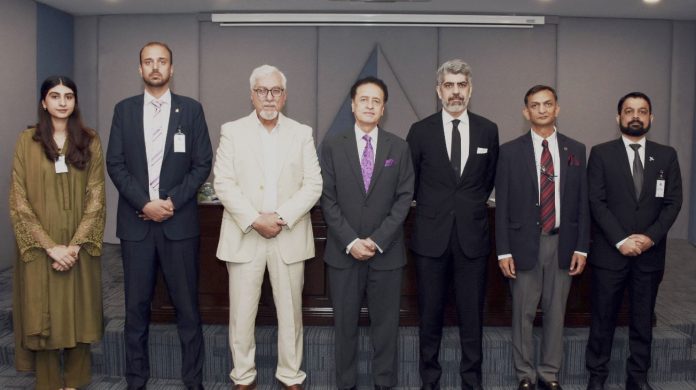Air Marshal Asim Suleiman (Retd), President, CASS , reaffirmed Pakistan’s steadfast dedication to upholding the fundamental principles enshrined within the Indus Water Treaty
Saifullah Ansar
ISLAMABAD: The Centre for Aerospace & Security Studies (CASS), Lahore, hosted a seminar titled ‘Navigating the Indus Water Treaty: India’s Hyper-nationalism and Pakistan’s Water Security Challenges’. The event focused on the heart of Pakistan’s socio-economic wellbeing – its water resources, and the challenges the Treaty faces due to the changing political dynamics in India.
The seminar commenced with opening remarks by Dr Bilal Ghazanfar, Associate Senior Researcher at CASS, Lahore, who emphasised that cooperation, not conflict, is the key to securing a shared water future for the region. This was followed by a keynote address by Engineer Suleman Najib Khan, Convener, Water and Resource Development Council, who spoke about India’s water aggression and termed it as an ecocide in motion.
He added that there is no silver bullet and Pakistan must build the Indus Cascade for its water security. Mr Ahmed Rafay Alam, an environmental lawyer, discussed the legal perspective on the Indus Water Treaty and highlighted the need for Pakistan to take a robust stance in defending its water rights and seeking international support to resolve disputes and ensure the implementation of the accord. The last speaker, Dr Hassan Abbas, a renowned hydrologist, framed the Indus Water Treaty as a catalyst for environmental peacebuilding. He promoted a holistic approach to water management, emphasising cooperation, sustainability, and regional stability in the face of climate change and geopolitical challenges.
In his concluding remarks, Air Marshal Asim Suleiman (Retd), President, CASS Lahore, reaffirmed Pakistan’s steadfast dedication to upholding the fundamental principles enshrined within the Indus Water Treaty. He emphasised that as Pakistan’s eastern neighbour, India shares the responsibility for maintaining peace in the region. Therefore, he urged India to reaffirm its solemn commitment to international agreements and cautioned against any unilateral measures that could potentially jeopardise the Treaty’s integrity. Furthermore, he said that international institutions that played a pivotal role in formulating the Treaty must step forward to safeguard its sanctity and ensure its continued efficacy.
The speakers pointed out that India’s hyper-nationalism and unilateral measures on the Indus Water Treaty threaten Pakistan’s water security and peace, endangering the lives and livelihoods of millions in the region. They also noted that Pakistan faces significant security challenges, including water scarcity, climate change, and India’s assertive actions as an upper riparian state. Therefore, the seminar concluded with a resolute commitment to uphold the Treaty and a fervent call to action for the international community.

















